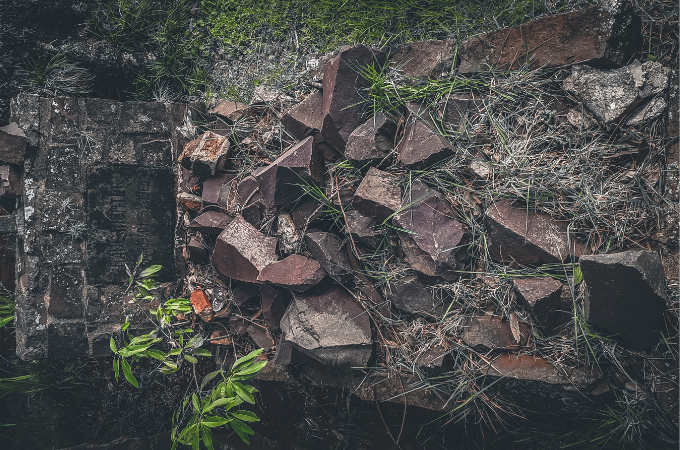
Baba’s grave is bare and ugly. A miserable mound of hard earth covered in dry eucalyptus leaves and surrounded by a few scattered stones. For eight years, seven months and twenty-eight days, nothing has grown on or near the grave. Not even the daffodils mama and I plant on his anniversaries — flowers that dwindle in the August rains to wilt and die under the fiery January sun. Our mistake was placing baba’s remains in a cement vault first and then topping the grave with soil. Had we put him directly into the ground, directly into the warm earth, his rotting corpse would be providing excellent nutrients for the daffodils.
Forgive me, my brother, I am the one who suggested the cement vault. The ugliness of baba’s grave is on me. But you, our baba’s first strength, you who resemble him in features and charisma, you were not there when mama, tired of making all the funeral decisions alone, asked what type of grave we wanted for baba. Our sister, cradling herself in bed, was far consumed with listening to Kabasele’s “Wuora Ogolla Adoyo” on repeat and I, I was sixteen, I didn’t know what to do with grief except to shelve it safe in a vault. Had you been there, mama wouldn’t have had to trust me with such a momentous decision.
Now most nights when I dream of baba, I dream that he is trapped in a dark, uncomfortably moist limbo. Tears trickling from the corner of his shut eyes have, over the years, bore into the black, spongy skin, forming a stream that runs from the eye-sockets into the ears. And his twisted, agape mouth conveys a wordless plea for me to come and release him from perpetual suffering. Other nights, when the sunny season extends too long, I can’t sleep. I stay awake worrying that the high temperatures will heat the trapped moisture, creating a build-up of vapour and gasses and cause the vault to explode. I imagine dirt and concrete flying everywhere, followed by bits of tattered clothes, bones and coffin splinters, and then a foul smell permeating the air.
You know I never cried for baba. Not on the Friday mama and I rushed him to the hospital. Not on the Saturday dawn mama woke me up to say my goodbyes to him. Not when we brought his body home and our sister shook the tree he loved to sit under, pointed at the sky and dared God to send thunder and lightning to kill her too. Not when you were too drunk to stand and eulogize baba. Not even when mama stood to give her eulogy but couldn’t say no more than, “My friend has now gone to sleep.” I didn’t cry when baba’s coffin hit the bottom with a dull, dreadful thud — a thud that sinks the heart and engraves itself to the core of the memory. I didn’t cry because I couldn’t cry. Because the degree of grief in me demanded something far greater than tears, something substantial, something that could hurt physically as I was hurting in my soul.
Sixteen was a terrible age to lose baba. I was old enough to perceive the full extent of the loss. I felt it twisting and breaking me, but at the same time, I was young and inexperienced with grief; I didn’t know how to handle it, I didn’t know what to do with it. I saw people who knew baba shed a few tears before joining the catering queue and I wondered if grieving was a kind of performance — a role I just had to embody once, sniffle twice and it would be over; I would be free to move on with life. I saw our sister mourn openly, daring God to a duel and throwing stones at the onlookers who were recording her with their phone cameras. I yearned to be as brave and honest in my grief as she was in hers, but when I tried to emulate her, the acts couldn’t wholly hold the inexplicable hurt I felt.
Now I feel ready to confront my festered grief but the image I have of baba is not the same as the one I had shelved in the vault. Now, not only is he the charismatic, eloquent guest of honour during my class eight prayer day, but he is also the lazy man who misplaced his socks every morning and barked orders at us, including mama, to search for them. Not only is he the empathetic, generous, church elder who was easily moved to tears by other people’s plight, but he is also the petty, easily irritated husband who made mama do all the chores even though both of them were employed teachers. My memory is now clear. I recall the day he found me helping mama with the dishes. Yes, yes, I now remember the anger that furrowed his brow, the resentment that clouded his eyes, and the words he spoke, ‘House chores are making you weak, that’s why you are not performing well in school.’
And, my brother, the most burdensome memory I carry of him is of the time he beat mama. Fuck! Things buried deep in my subconscious are rising to the surface: The crack of his whip in that morning air, mama’s desperate wails, the feel of my heart beating, breaking, crumbling, the sour taste of fear filling my mouth. You knew about this side of baba, didn’t you? Is that why you almost fought him on New Year’s Eve of 2008? You knew! That’s why you didn’t eulogize him. That’s why the soil had barely settled on his grave and there you were, relocating to Mtwapa. My brother, tell me — and please, be honest with me as brothers should — has relocating, drinking, and whoring helped with your grief?
I confess, in spite of the seething anger this other image of baba stirs in me, I still break down in the shower. And some mornings I wake up with a heavy, tired heart — as heavy and tired as the first morning after the burial when I saw the empty table top where his coffin had rested during the vigil. I hate him, I miss him and I wish there were a way he could explain himself. But then, what explanation can ever justify beating our mother, his wife? Sixteen was a tragic age to lose baba; from that point on, I was sentenced to a life of mourning without closure, condemned to grieve and hate that I’m grieving far too long for someone who no longer deserves my grief. I know that for all these years, you too have been serving this sentence. And mama and our sister also. Not anymore.
This is what we are going to do. We are going to exhume baba and rebury him directly into the warm earth, allowing his remains to turn to dust and his soul to return to the universe. Then we are going to light a bonfire and listen to Kabasele’s “Wuora Ogolla Adoyo” on repeat — I am yet to find a song that holds a heart breaking with grief better than this track, our sister’s favourite. We are going to share the stories of him we carry in our hearts, the good and the ugly. We are going to try to be honest and brave in our grief and anger. And if at the end of the night, one of us will say, ‘‘My friend is now free in sleep,” we will hold them in an understanding embrace. And if another drinks too much in an attempt to numb the part of them that hurts, we will include them too in our embrace.
Come home, brother. The weight of our grief is too burdensome for us to bear separately in silence.
Photo by sergio souza from Pexels



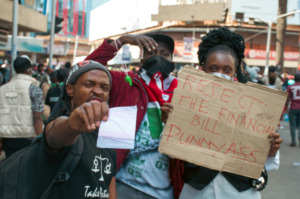
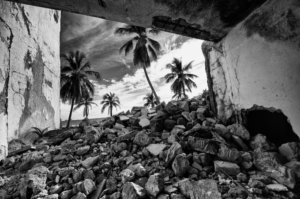
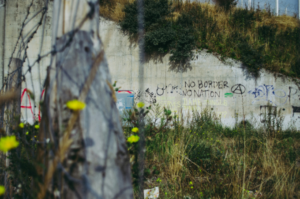
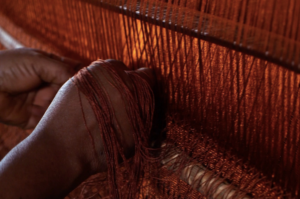
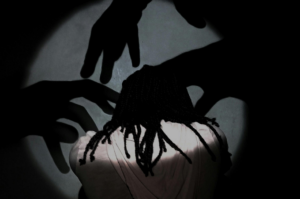
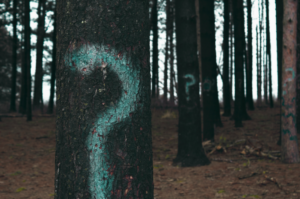

Brendah Raj September 11, 2023 04:53
This is a heart wrenching read. Hugs and comfort to you and your family. Thank you for bleeding your heart out into this beautifully crafted piece of you and allowing us to be part.